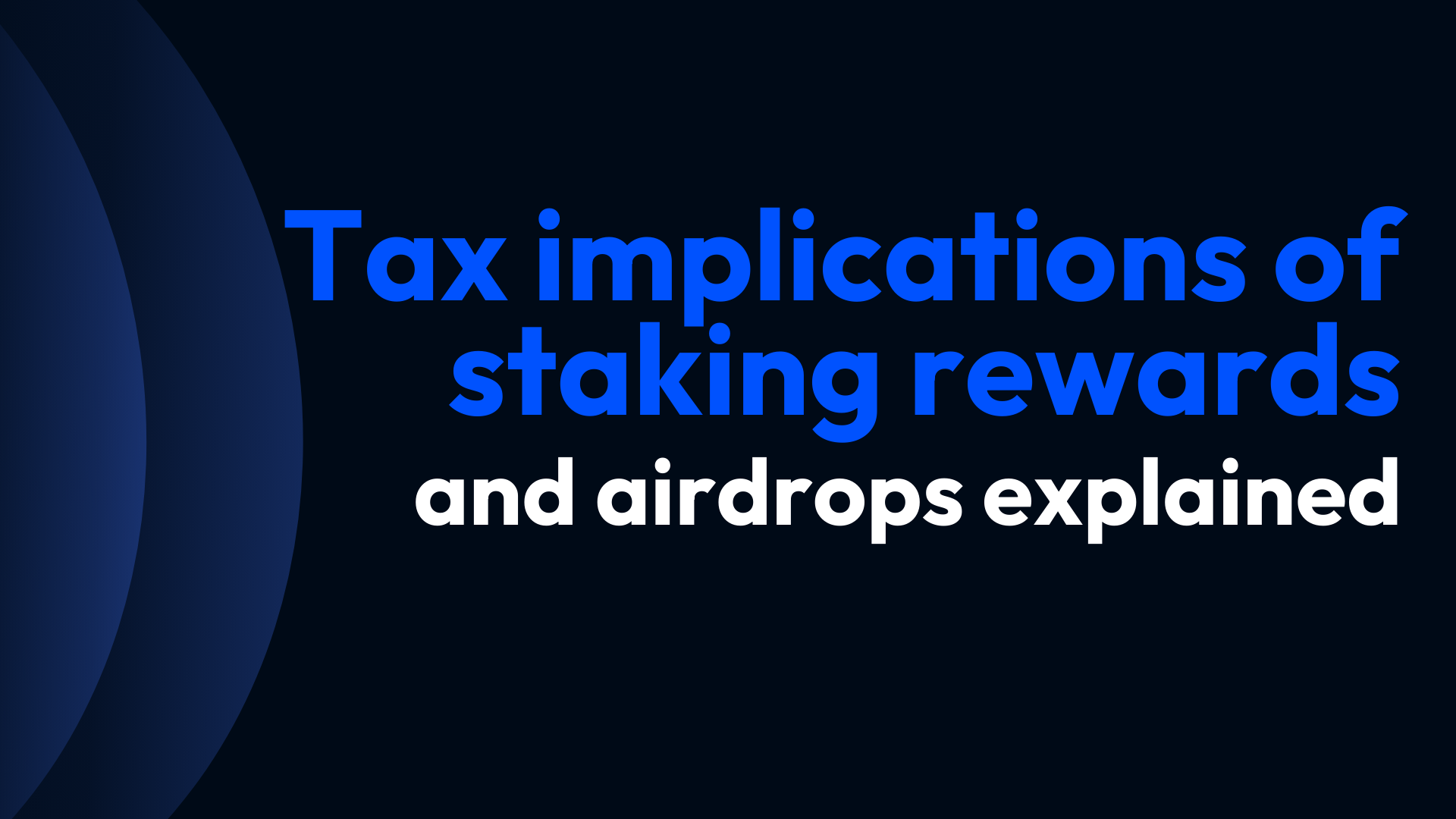
As cryptocurrency continues to evolve, more investors are earning passive income through staking rewards and airdrops. While these earnings provide exciting opportunities to grow your portfolio, they come with specific tax obligations that shouldn’t be overlooked.
Both staking rewards and airdrops are considered taxable income by the IRS and must be reported accurately on your tax return. Failing to do so can lead to penalties, audits, and unnecessary stress during tax season.
We’ll break down the tax implications of staking rewards and airdrops, provide tips for accurate reporting in this article, and show how DeFi Tax simplifies the process for stress-free compliance.
Staking is a popular way for crypto investors to earn passive income by participating in blockchain networks. However, these earnings are treated as taxable income by the IRS.
✅ Staking Rewards are Taxable Upon Receipt
When you receive staking rewards, they are considered ordinary income at the moment they are credited to your wallet. The value of the rewards is calculated based on the fair market value (FMV) at the time of receipt.
For example:
✅ Best Practices for Tracking Staking Rewards
Accurately reporting staking rewards requires meticulous record-keeping. Here’s how you can stay organized:
Airdrops, which are free distributions of cryptocurrency to wallet holders, also fall under the category of taxable income. Here’s what you need to know:

Airdrops are Taxable Events. The IRS treats airdrops as taxable income, whether or not you intend to receive them. The amount you must report is based on the fair market value of the tokens at the time they are accessible to you. For example: If you receive 100 tokens from an airdrop, and the FMV of each token is $10 at the time of the drop, you must report $1,000 as income.
Timing Matters. Airdrops are taxable when you have control over the tokens—typically when they are deposited in your wallet and available for use. Delays in accessing the tokens, such as time-locked distributions, may affect when they become taxable.
Challenges with Airdrops. Tracking airdrops manually can be tricky due to the number of transactions and potential fluctuations in token value. Automated tools like DeFi Tax can help streamline this process by accurately recording FMVs and categorizing the income.
Managing the complexities of staking rewards and airdrops doesn’t have to be overwhelming. DeFi Tax simplifies the process with its automated features, ensuring accurate reporting and compliance with IRS regulations.

Understanding the tax implications of staking rewards and airdrops is essential for every crypto investor. With IRS regulations becoming stricter, accurate reporting is more important than ever.
DeFi Tax takes the guesswork out of crypto tax reporting by automating tracking, categorization, and reporting. Whether you’re staking ETH or receiving free tokens through an airdrop, DeFi Tax ensures your filings are complete, accurate, and stress-free.
Simplify your staking and airdrop taxes—try DeFi Tax today!